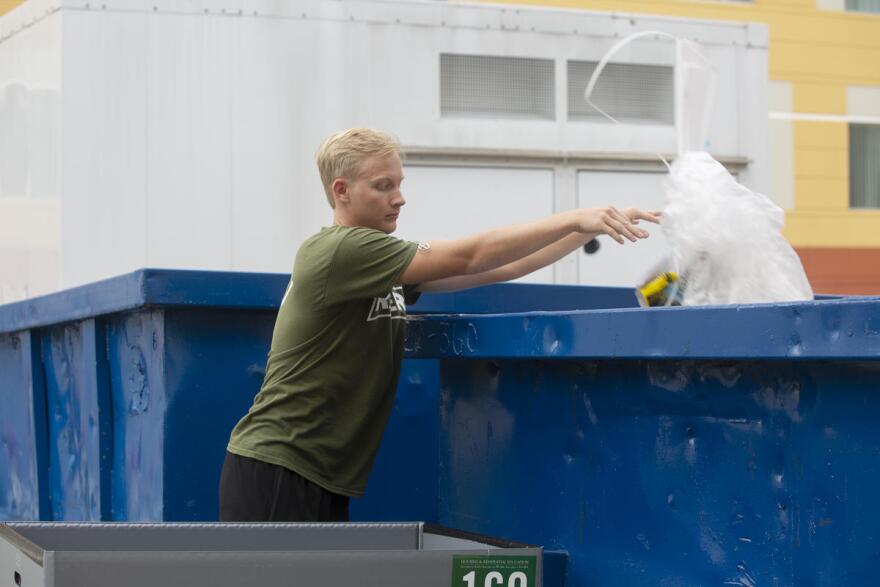Masks, social distancing, handwashing, hybrid classes. As college students move in to their dorms in the midst of the coronavirus pandemic, they must learn to follow a host of new protocols that university leaders hope will be enough to prevent closures and mass quarantines due to COVID-19.
Rolling a metal cart as he wrapped up his move-in day this week, University of South Florida freshman Matt Williams said he was glad to see some of the safety measures in effect.
“I like how they are making some classes online. I think that is useful,” Williams said.
“Some classes need to be in-person, like my chemistry lab, so I’m fine with that. And they are operating at like 50 percent capacity. I think they are handling it the best way they can,” he said.

At USF St. Petersburg, dean of students Jacob Diaz said about 400 students moved in this week on a staggered schedule to maintain social distancing.
“Students have been very compliant. They come to campus, they are wearing their masks inside our spaces and they are being thoughtful about distance between the next person,” Diaz said.
Every new resident had to come in with a negative test result for COVID-19. Testing is available on-site at the USF campuses in Sarasota, Tampa and St. Petersburg.
However, turnaround time in the area tends to take 48-72 hours on average, and depends on the lab performing the tests.
The university has set aside dorm rooms for students who may need to isolate if they get sick. New signs are posted, advising students to wash hands and wear masks.

USF freshman Fernanda Kolanian said her parents gave her lots of health advice when they dropped her off.
“They have definitely talked to me about washing my hands and sanitizing all the time and keeping my distance,” she said.
“They are more scared than I am. I’m more excited about everything and I want to get to know people.”

Diaz said that seeing other universities, like Notre Dame and UNC Chapel Hill, halt in-person classes due to a surge in coronavirus cases was worrying.
“When I hear of other campuses wrestling with challenges, it always seems to be connected to larger student gatherings happening,” Diaz said.
“The lesson learned for me has been, I don’t think we can communicate enough daily about the importance of staying apart,” he added.
"We are also telling -- encouraging -- them, don’t gather together in groups that you normally would have in the past, right? And we know that that’s hard.”
USF classes begin Monday. About 60 percent of classes are virtual, about 20 percent in person, and the rest hybrid.
“We have our protocol in place. And I think we're just all hoping that folks stay safe,” Diaz said.

9(MDAyNDY5ODMwMDEyMjg3NjMzMTE1ZjE2MA001))




Copyright 2020 WUSF Public Media - WUSF 89.7




